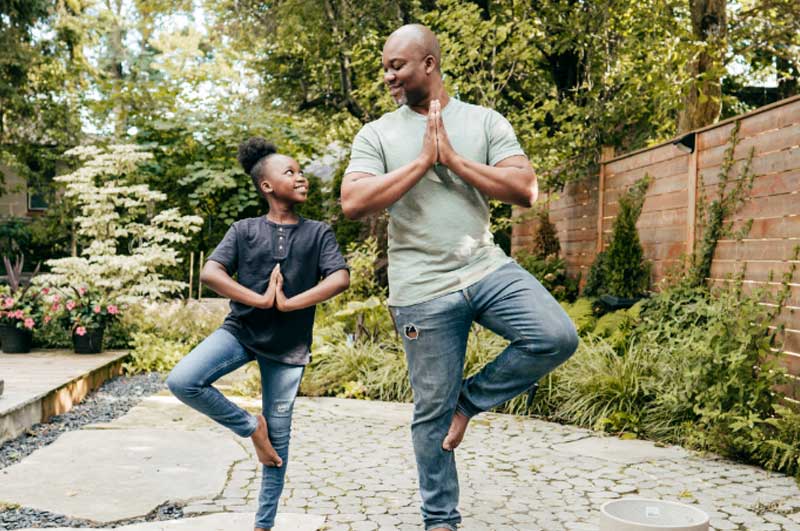Your wellbeing is largely dictated by what makes you happy. Finding the leading sources of prosperity and contentment can be hugely important when tackling the struggles of everyday life, whether this be holding down jobs or dealing with the increasing cost of living.
For some, however, gaining a sense of positive wellbeing can be particularly hard. This is why World Wellbeing Week was created. It aims to educate and enrich anyone who is struggling with their mental health.
What is World Wellbeing Week?
This week-long campaign is now in its fourth year, and is designed to tackle common areas of concern that may affect wellbeing. Some of the biggest problems for many are emotional health, social reliance and financial security, which can be broken down and managed far more effectively with the right mindset.
The effects of COVID-19 have tended to amplify these problems, sometimes to untenable heights, especially during lockdowns when we have been more likely to fall into overthinking things. This is why resilience has become a key focus for 2022. Resilience is a trait that we have all needed to draw on to survive the isolation we have needed to endure during the past two years.
How To Get Involved in Wellbeing Week
Getting involved is simpler now that the many recent restrictions we’ve lived with have been lifted. Now that we can travel and reconnect with loved ones again, we should have a deeper appreciation of the way these crucial activities, that we have previously taken for granted, can lead our charge to a more positive mindset.
The idea of togetherness is also being encouraged through social media, where the use of the hashtag #Worldwellbeingweek can be a really simple way to show your support for this campaign. You can also send details of your campaigning to info@wellbeingweek.je and your efforts could be featured in the WellBeing World Magazine.
Common Signs You Have Poor Wellbeing
Poor Concentration
If your mind is awash with negative emotions, it may become difficult to focus on your daily tasks. Your performance at work could be affected, with your brain less likely to be able to make informed decisions when it really matters.
Turning to Stimulants
When we can’t naturally feel happy, it’s common for people who really struggle with their wellbeing to turn to substances such as sugar or alcohol to get a temporary uplift. While they may make you feel slightly better to begin with, these stimulants can impact your health negatively when abused.
Becoming Overwhelmed
Sometimes everything becomes too much to handle, and this can lead to negative thoughts and overwhelm, causing problems with daily tasks and interfering with much-needed sleep. This can launch you into a negative spiral which can seem hard to move away from, which is why tackling mental health issues when they first surface has always been recommended.
What are The Five Areas of Wellbeing?
Your path towards greater wellbeing is normally based on these five really simple steps:
Connecting With Others
By creating long and prosperous relationships with others, you’re likely to feel a sense of belonging and self-worth. We’re often easily distracted by mobile phones or TV, but putting these aside every so often to focus on real human interaction could significantly boost your emotional state.
Keeping Active
Even just a few short walks each week can make a huge difference to both your physical and mental health. Setting yourself goals to keep you active can also bring a real sense of purpose to your day. Movement causes chemical charges to ignite within your brain, and this can lead to a general upswing in your mood.
Learn Something New
Developing new skills will broaden your mind and could give you the boost your self-esteem needs. With such hectic working weeks in modern life, time is often against us. So, start small, with activities such as cooking or blog writing, and you’ll soon notice how these new hobbies can become a great form of escapism, helping to create balance in your mind.
Give Back
Receiving gifts is a wonderful feeling but, as we get older, we are more likely to get a buzz from giving to others. A small act of kindness can go a really long way to making you feel more content with yourself, just knowing that you’re actively trying to make a difference to other people’s lives.
Focus on The Present
If you’re anxious, you might become fixated on the future, while depression can lead you to dwell on the past. Mindfulness teaches that we are often at our happiest when we focus on the present moment, and push all other thoughts away.
If you are finding life particularly tough, it could be worth talking to your GP about trying talking therapies such as cognitive behavioural therapy. These take a holistic approach to your wellbeing, helping to bring a deeper understanding of the key triggers that are standing in the way to you finding that true sense of contentment.







Leave A Comment